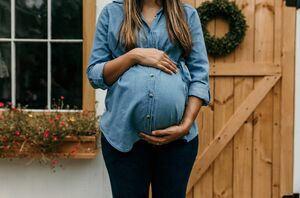Abortion
Dangerous ‘decrim’ abortion amendment fails to pass

"The current 24-week limit law is based on an outdated understanding of the viability of premature babies, and it needs to be updated. In 1990, 24 weeks was considered the point of viability outside the womb, but the scientific advances in those 31 years have been enormous.
Today, a dangerous abortion amendment to the UK Government’s Health and Care Bill failed to pass.
NC 50 aimed to introduce the so called ‘decriminalisation’ of abortion up to 24 weeks or the point of viability. CARE briefed MPs to oppose this amendment, which has nothing to say about the value of the unborn baby.
This is now the second time a ‘decriminalisation’ amendment has been withdrawn after a similar attempt failed to pass last summer. Three other pro-life amendments also failed to pass, however the purpose of these amendments was to test the feelings of the House and the Government.
Fiona Bruce MP and Carla Lockhart MP gave excellent speeches in support of their amendments.
The Health and Care Bill will now finish its final stages in the Commons before heading to the House of Lords for further scrutiny.
CARE’s CEO, Ross Hendry, said:
“Today’s outcome is a powerful reminder of the power of prayer and action.
“NC 50 had no regard to the value of the unborn baby and so we’re delighted it has failed to pass.
“It was also good to see MPs speak out for positive amendments and there will be fresh opportunities to promote life-affirming laws in the months ahead.”
Read highlights from the debate
Speaking to her NC 31, Fiona Bruce MP said:
"The current 24-week limit law is based on an outdated understanding of the viability of premature babies, and it needs to be updated. In 1990, 24 weeks was considered the point of viability outside the womb, but the scientific advances in those 31 years have been enormous. "The latest guidance from the British Association of Perinatal Medicine establishes 22 weeks gestation to be the point of viability and enables doctors to intervene to save premature babies from 22 weeks. "A study from a neonatal intensive care unit in London found that survival rates for babies born at 22 and 23 weeks gestation went from zero in the period from 1981 to 1985 to 19% in the period from 1986 to 1990, and then up to 54% in the years from 1996 to 2000. "We would no doubt find that the figures had increased substantially since then, were those figures available. Just in the past few weeks, we have seen the incredible story from the American state of Alabama of the birth of a baby boy at just 21 weeks old. Weighing just 14.8 ounces, Curtis Means needs oxygen support and a feeding tube, but he is in good health."
Speaking to NC 51 and 52, Carla Lockhart MP said:
"New clause 51 relates to the practice of abortion based on sex selection, and it seeks to clarify that abortion on the grounds of the sex of the foetus alone is illegal. Hon. Members from across the House would doubtless agree that aborting a baby on the basis of their sex is immoral, yet the status of this in law remains unclear. "I wish briefly to touch on new clause 52—also tabled in my name—which would introduce an upper gestational limit on abortion on the grounds of disability that is equal to the upper limit on most other abortions. It would correct the current deeply discriminatory situation that permits abortion up to birth if “there is a substantial risk that if the child were born it would suffer from such physical or mental abnormalities as to be seriously handicapped.” "That has been interpreted as permitting abortions up to birth following the diagnosis of either a cleft lip, a cleft palate or a club foot. This is inconsistent with disability discrimination legislation, because it allows for abortion on the grounds of disability more widely than most abortions are allowed."
Share
